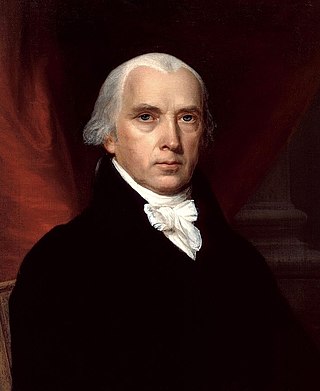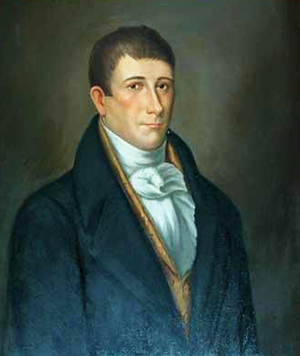| Elections in North Carolina |
|---|
 |
| District | Incumbent | This race | |||
|---|---|---|---|---|---|
| Representative | Party | First elected | Results | Candidates | |
| North Carolina 1 | Lemuel Sawyer | Democratic-Republican | 1806 | Incumbent re-elected. | √ Lemuel Sawyer (Democratic-Republican) 67.0% William H. Murfree (Federalist) 33.0% |
| North Carolina 2 | Willis Alston | Democratic-Republican | 1798 | Incumbent re-elected. | √ Willis Alston (Democratic-Republican) 58.0% Daniel Mason (Democratic-Republican) 42.0% |
| North Carolina 3 | Thomas Blount | Democratic-Republican | 1793 1802 (Lost) 1804 | Incumbent lost re-election. New member elected. Democratic-Republican hold. | √ William Kennedy (Democratic-Republican) 52.0% Thomas Blount (Democratic-Republican) 48.0% |
| North Carolina 4 | William Blackledge | Democratic-Republican | 1803 | Incumbent lost re-election. New member elected. Federalist gain. | √ John Stanly (Federalist) 51.8% William Blackledge (Democratic-Republican) 48.2% |
| North Carolina 5 | Thomas Kenan | Democratic-Republican | 1805 (Special) | Incumbent re-elected. | √ Thomas Kenan (Democratic-Republican) 100% |
| North Carolina 6 | Nathaniel Macon | Democratic-Republican | 1791 | Incumbent re-elected. | √ Nathaniel Macon (Democratic-Republican) 99.9% |
| North Carolina 7 | John Culpepper | Federalist | 1806 1808 (Contested election) 1808 (Special) | Incumbent lost re-election. New member elected. Federalist hold. | √ Archibald McBryde (Federalist) 54.6% John Culpepper (Federalist) 45.4% |
| North Carolina 8 | Richard Stanford | Democratic-Republican | 1796 | Incumbent re-elected. | √ Richard Stanford (Democratic-Republican) 65.3% Duncan Cameron (Federalist) 34.7% |
| North Carolina 9 | Marmaduke Williams | Democratic-Republican | 1803 | Incumbent retired. New member elected. Democratic-Republican hold. | √ James Cochran (Democratic-Republican) 52.3% Theophilus Lacy (Democratic-Republican) 47.3% |
| North Carolina 10 | Evan S. Alexander | Democratic-Republican | 1806 (Special) | Incumbent retired. New member elected. Federalist gain. | √ Joseph Pearson (Federalist) 63.8% Robert Locke (Democratic-Republican) 36.2% |
| North Carolina 11 | James Holland | Democratic-Republican | 1800 | Incumbent re-elected. | √ James Holland (Democratic-Republican) 48.7% Felix Walker (Democratic-Republican) 31.2% John MacClain (Federalist) 9.4% William Tate (Federalist) 8.0% William Porter (Federalist) 2.8% |
| North Carolina 12 | Meshack Franklin | Democratic-Republican | 1806 | Incumbent re-elected. | √ Meshack Franklin (Democratic-Republican) 54.6% Joseph Winston (Democratic-Republican) 40.5% James Martin (Federalist) 4.9% |











